Willson Center Cinema Roundtable
The Willson Center Cinema Roundtable meets to discuss topics of film history, criticism and theory. Richard Neupert, Wheatley Professor of the Arts, Josiah Meigs Distinguished Teaching Professor and film studies coordinator in the Department of Theatre and Film Studies, organizes and moderates one roundtable each semester. Audiences are invited to participate and the events are free and open to the public.
2023-2024
Billion Dollar Barbie: Greta Gerwig, Pop Culture & Barbiemania
November 3, 2023
Greta Gerwig’s Barbie has taken global cinemas by storm, earning over $1.4 billion and counting. Beyond all the box office revenues, which have provided a boost to movie theaters around the world this summer, Barbie has also spurred rave reviews from its vast fandom and critical reactions from cultural commentators. Even the French Communist paper L’Humanité pondered the phenomenon: “Can a movie be both a thinly disguised commercial to sell toys and an inspiring feminist comedy? It appears so.”
This Willson Center Cinema Roundtable addresses the story, themes, style, cultural implications and gender politics of Gerwig’s big pink production. Panelists include Kate Fortmueller (Film, Media & Theatre, Georgia State University), Antje Ascheid (Film Studies), designers Ivan Ingermann and Julie Ray (Theatre and Film Studies), and Chris Cuomo (Philosophy and Women’s Studies). Richard Neupert (Film Studies) moderates. The event is free and open to the public, which will be invited to join in the lively conversation.
This event is part of the 2023 Spotlight on the Arts festival, presented by the UGA Arts Council.

2022-2023
Everything Everywhere All at Once and Its Frenetic, Multicultural Multiverse
February 24, 2023
The Daniels Kwan and Scheinert’s unconventional Everything Everywhere All at Once has already won scores of top awards from a wide range of film festivals and grossed over $100 million worldwide at the box office. In addition to awards for best directing, screenplay, editing, and music, Michelle Yeoh and Jamie Lee Curtis have been singled out for their groundbreaking performances. Its explosive use of genres and eclectic visual styles has also prompted discussion of ADHD, among its characters, Dan Kwan, and even audience members.
This roundtable addressed the story, intensified style, cultural implications, and reception of Everything Everywhere All at Once. Panelists included Kate Fortmueller and Sanghoon Lee (both in the Grady College’s department of entertainment & media studies), Jingyi Zhang (theatre and film studies), and via Zoom, Jianna Justice, senior brand creative at A24 Films and former UGA student. The panel was moderated by Richard Neupert (theatre and film studies). The audience was invited to participate in the discussion and ask questions.
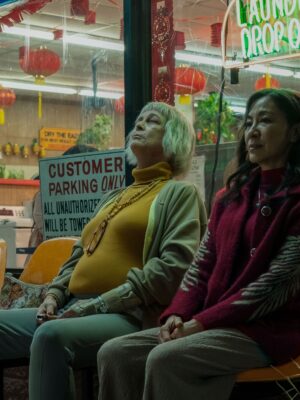
New Blood: Recent Trends in Horror Cinema
September 30, 2022
The Horror genre has always included a wide range of films, from low-budget “B movies” and drive-in exploitation to mainstream movies and art films. However, the last decade has seen major changes for the genre, which has never been more popular than it is right now. This panel addressed recent trends, including so-called A24 horror, minority and indigenous productions, and indie art films such as Midsommar, A Ghost Story, The Babadook, The VVitch, Hereditary, and It Follows, among others.
The panel included UGA faculty Kate Fortmueller (Grady College, Entertainment and Media Studies), Christopher Sieving (Theatre and Film Studies), Channette Romero (English), and Ben Kruger-Robbins of Emory University (Film and Media). The roundtable was moderated by Richard Neupert (Film Studies), and the audience was invited to participate in the discussion and ask questions.
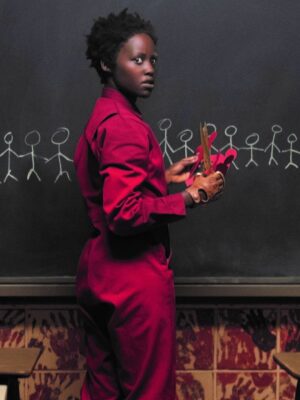
2021-2022
Kenneth Branagh’s Belfast: History, Autobiography, and Film Style
March 25, 2022
Kenneth Branagh’s autobiographical Belfast intertwines romanticized visions of his family and childhood with the real-world troubles of Northern Ireland in 1969. Belfast earned the Best Screenplay prize at the Golden Globes and seven Academy Award nominations, among other festival honors. This roundtable discussed the political context along with ways Branagh’s movie employs stylized performances, evocative music, and black-and-white cinematography, to tell a personal, nostalgic, and powerful coming-of-age tale.
Roundtable panelists included two Irish-born professors, Nicholas Allen, director of the Willson Center, and Peter O’Neill of Comparative Literature, both of whom have written extensively about Irish literature and culture. The roundtable also featured media historian Kate Fortmueller and cinematographer Sanghoon Lee, both from the Grady College’s Entertainment and Media Studies Department, and composer Tom Hiel from the School of Music.
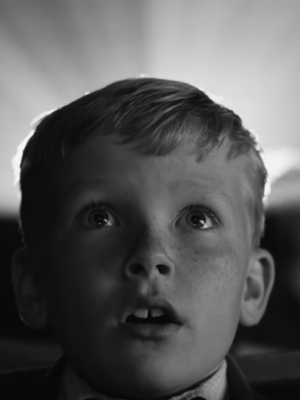
New French Cinema: “Beyond Borders – French Women Filmmakers and Global Perspectives,” a Willson Center Cinema Roundtable.
November 5, 2021
This event was part of the university’s Spotlight on the Arts festival.
The event is also part of France-Atlanta 2021, an annual series of high-caliber events, centered on innovation and designed to foster transatlantic cooperation and exchange in the fields of science, business, culture and humanitarian affairs. The series is co-organized by the Consulate General of France in Atlanta and the Georgia Institute of Technology, under the high auspices of the Ambassador of France to the United States, the Governor of Georgia and the Mayor of Atlanta.
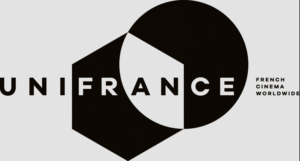 This event presents three movies from the 2021 Young French Cinema program as well as a virtual roundtable discussion with the filmmakers. All three films were created by women writer-directors and feature characters from outside of France. The End of Love (À Coeur battant) by Keren Ben Rafael is set in France and Israel; The Skies of Lebanon (Sous le ciel d’Alice) by Chloé Mazlo takes place in Beirut; and Should the Wind Drop (Si le vent tombe) by Nora Martirosyan follows a French inspector in Nagorno-Karabakh. The roundtable discussion will focus on storytelling, gender, and French culture beyond France’s borders. Participants will also include Kelley Conway, chair and professor of film in the department of communication arts at the University of Wisconsin-Madison.
This event presents three movies from the 2021 Young French Cinema program as well as a virtual roundtable discussion with the filmmakers. All three films were created by women writer-directors and feature characters from outside of France. The End of Love (À Coeur battant) by Keren Ben Rafael is set in France and Israel; The Skies of Lebanon (Sous le ciel d’Alice) by Chloé Mazlo takes place in Beirut; and Should the Wind Drop (Si le vent tombe) by Nora Martirosyan follows a French inspector in Nagorno-Karabakh. The roundtable discussion will focus on storytelling, gender, and French culture beyond France’s borders. Participants will also include Kelley Conway, chair and professor of film in the department of communication arts at the University of Wisconsin-Madison.
This event is organized by the University of Georgia’s Film Studies Program and the Willson Center for Humanities and Arts, Unifrance, and Athens Ciné, with the support of the Atlanta Office of the Cultural Services of the Embassy of France in the United States and the Alliance Française of Atlanta.

2020-2021
Film & TV During the Covid Era
April 16, 2021
The pandemic completely disrupted film production, distribution and exhibition during 2020-21. Even before cinemas closed, online streaming services were transforming the industry. Covid-related closures sped up some recent trends but also brought severe challenges to film and television productions. This panel assessed short-term and long-term effects of the pandemic on filmmaking and spectatorship. Panelists included faculty from Entertainment and Media Studies in Grady College: Kate Fortmueller, Anne Gilbert, and Neil Landau. Two former FILM and EMST majors also joined the panel: Jianna Justice (Netflix, formerly with A24) and Kelsey Cunningham (Hulu).

Wartime Suspense in Dunkirk and 1917: A Conversation with Kristin Thompson and David Bordwell
November 6, 2020
This Willson Center Cinema Roundtable brought together two of the world’s most renowned film scholars, Kristin Thompson and David Bordwell, both of the University of Wisconsin-Madison, to discuss storytelling in two important recent films. This conversation confronted two recent high-profile war films, Christopher Nolan’s Dunkirk, with its scrambled time-scheme, and Sam Mendes’s 1917, with its long takes for the illusion of near real-time storytelling. The roundtable examined how these two very different films with their opposing plot strategies and visual styles both develop stunning effects for their audiences. This event was part of the university’s 2020 Spotlight on the Arts festival.
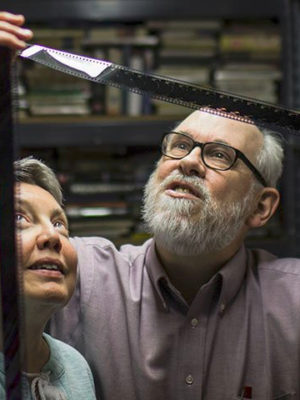
2019-2020
Little Women Revisited
February 28, 2020
Little Women Revisited addressed the story and style of Greta Gerwig’s Little Women and the tale’s cultural significance within literary and cinematic heritage. Panelists included Antje Ascheid (Theatre and Film Studies), Kristin Nielsen (Research & Instruction, UGA Library) and Nancee Reeves (English), and Kate Fortmueller (Entertainment and Media Studies).
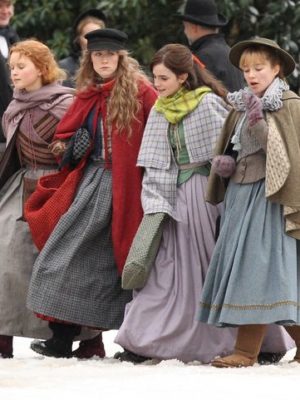
Once Upon a Time in… Hollywood: Gender, Genre, and Nostalgia in Tarantino’s 9th Film
October 4, 2019
Quentin Tarantino’s Once Upon a Time in… Hollywood offers a stylish tribute to 1960s American movie culture along with a fantasy about Sharon Tate, hippies, and the Manson family, all bathed in the retro colors and sounds of the era. As with every new Tarantino film, there have been immediate debates around his brash storytelling, revisions of history, representations of women, and his troubling, satirical treatment of a wide range of targets.
This Willson Center Cinema Roundtable confronted the themes, visual style, and critical reception of Once Upon a Time … in Hollywood. The audience was invited to join the discussion. The panelists included Kate Fortmueller (Entertainment and Media Studies), film scholar David Lerner, Michele Schreiber (Emory), and Christopher Sieving (Theatre & Film Studies).

2018-2019
RBG: Documenting Ruth Bader Ginsburg and her Cultural Legacy
February 15, 2019
The award-winning documentary RBG, by Betsy West and Julie Cohen, details the rise of Ruth Bader Ginsburg from law school to her ground-breaking legal cases on gender rights to her rare “cult status” as a Justice on the Supreme Court. This roundtable discussed the RBG movie, assessed Ginsburg’s significance for constitutional law and gender, and evaluated the media frenzy around her today. Panelists included visiting Federal Judge James D. Peterson (PhD in Film Studies), Matthew Bernstein (Chair of Film and Media Studies at Emory University), Sonja R. West (UGA Law School / Grady College), and Kate Fortmueller (Entertainment and Media Studies).
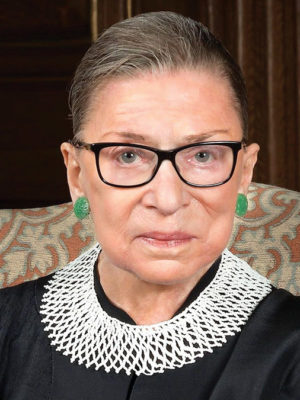
Mary Shelley, Frankenstein, and Cinematic Adaptations
October 19, 2018
In recognition of the international celebrations surrounding the 200th anniversary of Mary Shelly’s novel Frankenstein, the Willson Center presented a roundtable gathering together panelists from literature and film. Participants included Roxanne Eberle, Nancee Reeves, and Holly Gallagher from the English department, Christopher Sieving from theatre and film studies, and special guest Eddy von Mueller, co-editor of Frankenstein: How A Monster Became an Icon (2018) and former senior lecturer in film and media studies at Emory University. The panel addressed the core themes of Shelley’s work and Frankenstein’s cinematic legacy.
This roundtable was followed on October 31 with a day-long “Frankenread,” beginning at the UGA Main Library and culminating with a screening of Bride of Frankenstein that evening at Ciné.
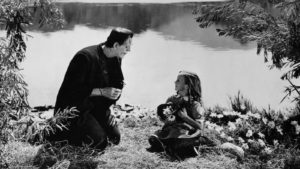
2017-2018
Women, Hollywood, and the #METOO Era
February 23, 2018
The year preceding this roundtable saw many dramatic revelations within the American cinema, from the Harvey Weinstein scandals and the #ME TOO plus #TIMESUP movements, to highly popular movies by women writers, directors, and producers, including Wonder Woman, First They Killed My Father, Mudbound, and Lady Bird, among many others. This panel addressed the current state of American filmmaking, assessing ongoing hurdles and notable triumphs for women in Hollywood today. Panelists included Antje Ascheid (Film Studies), Maryann Erigha (Sociology), Kate Fortmueller (Entertainment & Media Studies), and Rielle Navitski (Film Studies).

1967: How The Graduate and Bonnie and Clyde Changed Hollywood
October 13, 2017
This roundtable marked 50 years since 1967, a year that marked major shifts in Hollywood storytelling and censorship. Two lower-budget “youth pix,” The Graduate and Bonnie and Clyde, led the way, proving there was a big audience for new, daring content. Both films exploited elements from modern European Art Cinema to update American cinema with their radical themes, stunning visual style, and popular music scores. They also challenged the outdated Hollywood censorship and ratings system. Roundtable participants discussed the stories, styles, and historical significance of these two movies for the 1960s and beyond. Panelists included Matthew Bernstein and Michele Schreiber, both of film and media studies at Emory, as well as Christopher Sieving and Richard Neupert from film studies at UGA.

2016-2017
Writing Film and Media Criticism in the Digital Age
February 24, 2017
The internet has brought dramatic challenges and opportunities to film, media, and arts criticism. Major news outlets no longer enjoy the same authority and control over “expert” opinions during an era of interactive blogs and online criticism, and fewer local and regional newspapers can employ film or television critics. Meanwhile, many students are interested in how to participate professionally in this changing media landscape with its shifting economic models. This panel discussion offered a variety of perspectives on changes to film and media criticism over the past decade and assessed new media opportunities moving forward. Panelists included Charles Judson (TERMINUS film festival and CineATLMagazine), Nate Kohn (Entertainment and Media Studies; Roger Ebert’s Film Festival), Dave Marr (Willson Center), and Andrew Shearer (Online Athens & Athens Banner-Herald).
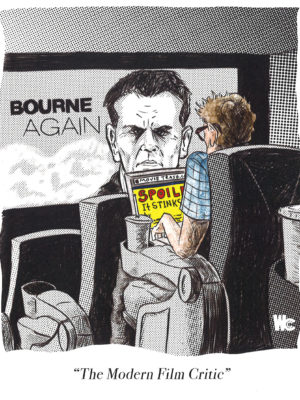
Nat Turner’s Rebellion and the (New) Birth of a Nation
November 11, 2016
The Birth of a Nation is a provocative new movie on every level. Nate Parker wrote, directed, and produced the film, in addition to starring as Nat Turner. His movie won both the Grand Jury Prize at Sundance and its Audience Award. The movie has been celebrated for its powerful treatment of religion and slavery, though concerns over Parker’s own personal history accumulated as the movie approached its national release. As Variety’s review stated: “The Birth of a Nation will provoke a serious debate about empathy, the morality of retaliatory violence, and the ongoing black struggle for justice and equality in this country.” This panel addressed the themes, style, and reception of Parker’s adaptation of Nat Turner’s story.
The panel included Valerie Babb (Institute for African American Studies and English), Amma Y. Ghartey-Tagoe Kootin (African American Studies and Theatre and Film Studies), Ed Pavlic (English and Creative Writing), and Christopher Sieving (Theatre and Film Studies).
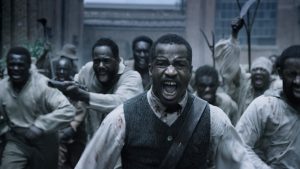
2015-2016
Animated Comic Attractions & Early Cinema
January 29, 2016
From its beginnings, cinema was influenced by other popular arts, especially caricature and comic strips. Many key filmmakers, including Emile Cohl in France and America’s Windsor McCay, adapted comic strip traditions into stunning motion picture “attractions.” This roundtable discussed how silent cinema reworked some of the graphic traditions and story content of comic strips from their era.
Visiting scholar Tom Gunning (University of Chicago) joined panelists Rielle Navitski (Film Studies) and Chris Pizzino (English), for this roundtable moderated by Richard Neupert (Film Studies). Gunning’s visit was sponsored by a Willson Center Short Term Visiting Fellowship and the Interdisciplinary Modernism/s research cluster.

Amy Schumer: Queen of Comedy
October 16, 2015
By any reasonable standard, 2015 was comedian Amy Schumer’s year. She hosted MTV’s Video Music Awards, graced the covers of magazines from GQ to Glamour to Entertainment Weekly, and was named one of Time’s 100 Most Influential People. Her cheerfully profane, sketch comedy series Inside Amy Schumer won a Peabody Award and was renewed for a fourth season on Comedy Central. And her subversive romantic comedy Trainwreck, which she wrote and starred in, was released in July to stellar reviews and an eventual gross of $100 million-plus.
The cultural significance of Schumer’s remarkable career trajectory was the subject of a Cinema and Media Studies Roundtable, “Amy Schumer: Queen of Comedy.” Panelists discussed a variety of issues related to Schumer’s recently attained status as, in the words of Entertainment Weekly, “comedy’s funny, filthy, fearless new voice.” What does her crossover success — on stage, on screen, and online — mean for the acceptance of women in comedy and in entertainment media in general? Does her current ubiquity represent significant gains for feminist ideas in the arena of popular culture? And is her work genuinely transgressive, or does her irresponsible party girl persona weaken her effectiveness as a feminist role model? These and related questions were addressed by panelists Christine Becker (University of Notre Dame), Jeffrey Jones (Director, Peabody Awards, UGA), Caren Pagel (Georgia State University), and Ethan Thompson (Research and Teaching Fellow, Peabody Awards, UGA). Christopher Sieving (Theatre and Film Studies, UGA) moderated.

Roland Barthes at 100: Theory / Culture / Legacy
October 23, 2015
Roland Barthes (b. 1915) was one of the 20th century’s most influential theorists. His work shaped literary theory as it shifted from structuralism and semiotics to psychoanalysis and cultural theory. His many important books include Mythologies, On Racine, S/Z, Image / Music / Text, The Pleasure of the Text, and Camera Lucida. This panel discussed the continuing relevance of Barthes for theoretical research on literature and culture today. Panelists included Doris Kadish (Romance Languages), Jed Rasula (English), and Andrew Zawacki (English).

2014-2015
Toy Story Turns 20: How Significant Was Pixar’s First Feature Film?
April 3, 2015
When Toy Story premiered in 1995 critics celebrated it as the dawn of a new era for motion picture animation. Toy Story also helped launch Pixar as the top brand for quality animation. Twenty years later it may be hard to fathom just how revolutionary Pixar’s first feature film was technically, but also culturally.
This roundtable discussed the significance of Toy Story for computer animation and Hollywood storytelling today. Panelists included Michael Hussey (Theatre and Film Studies), David Nix (Animator, College of Education), and Joelle Arp-Dunham (Theatre and Film Studies).

